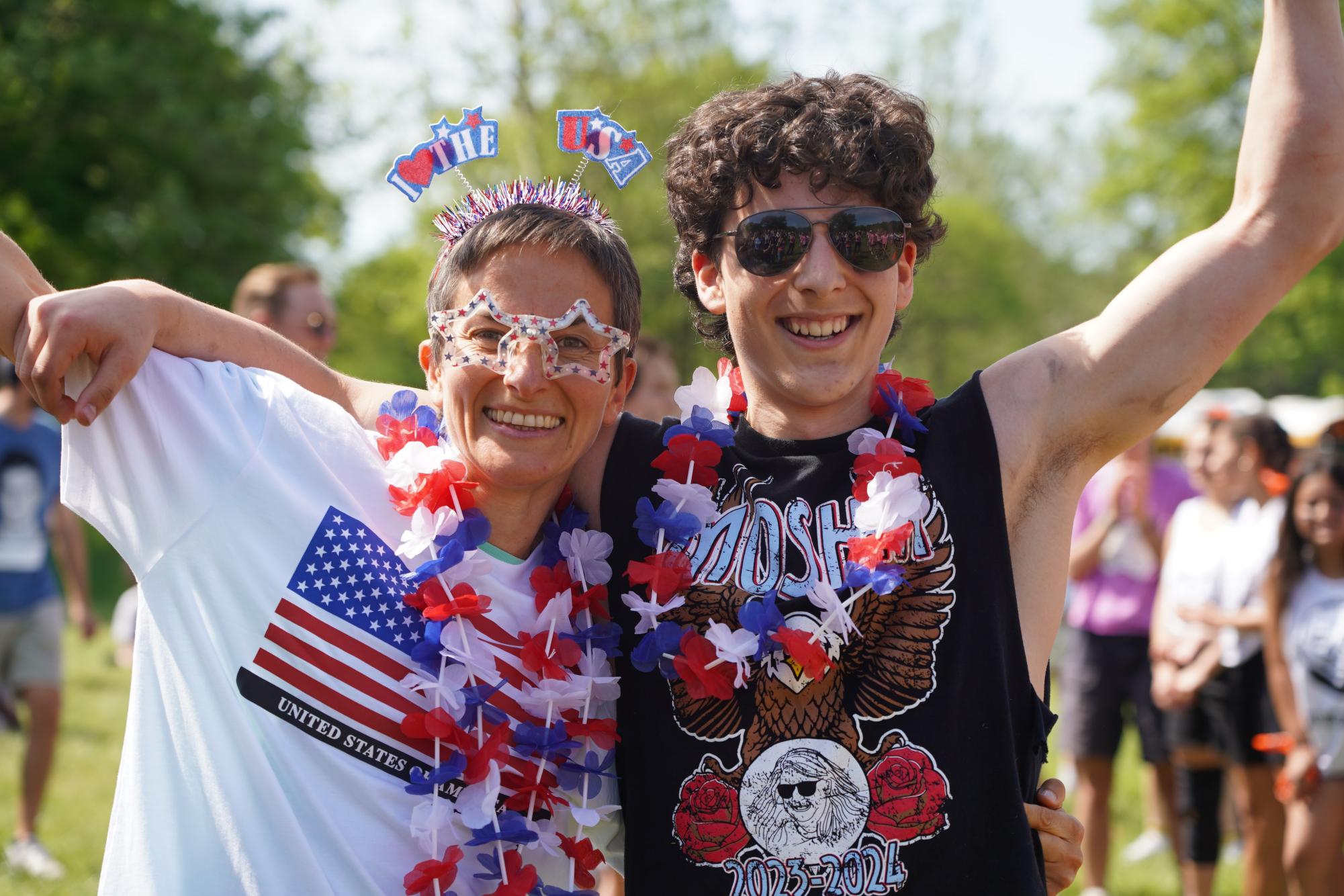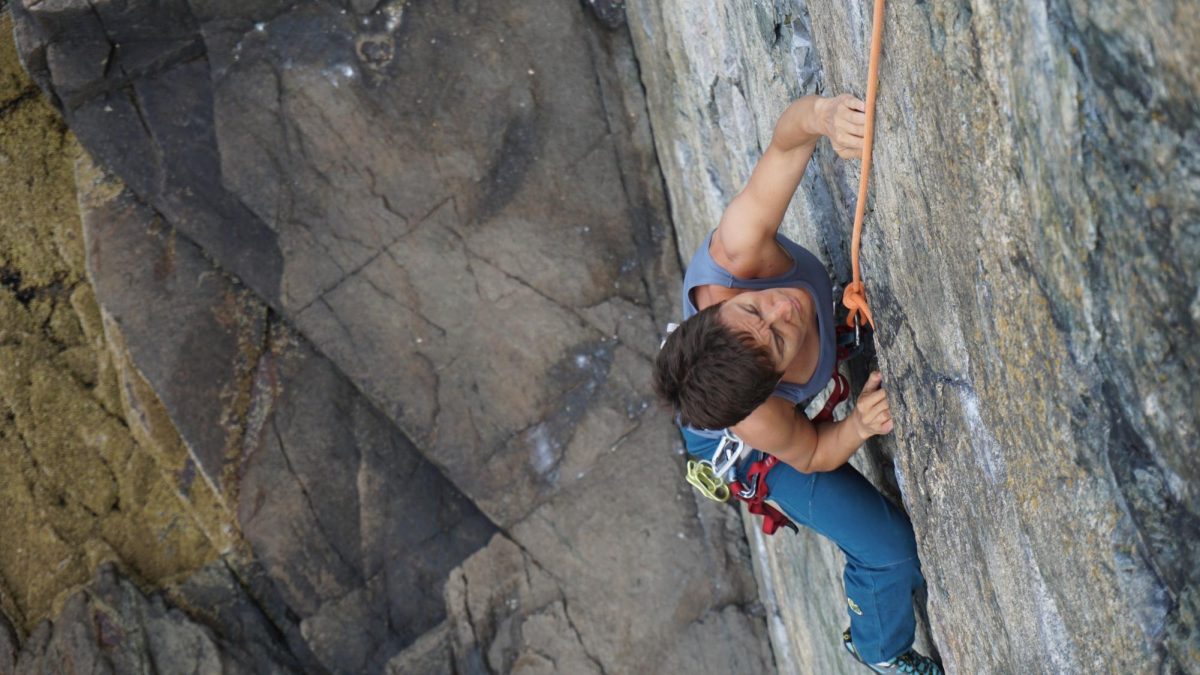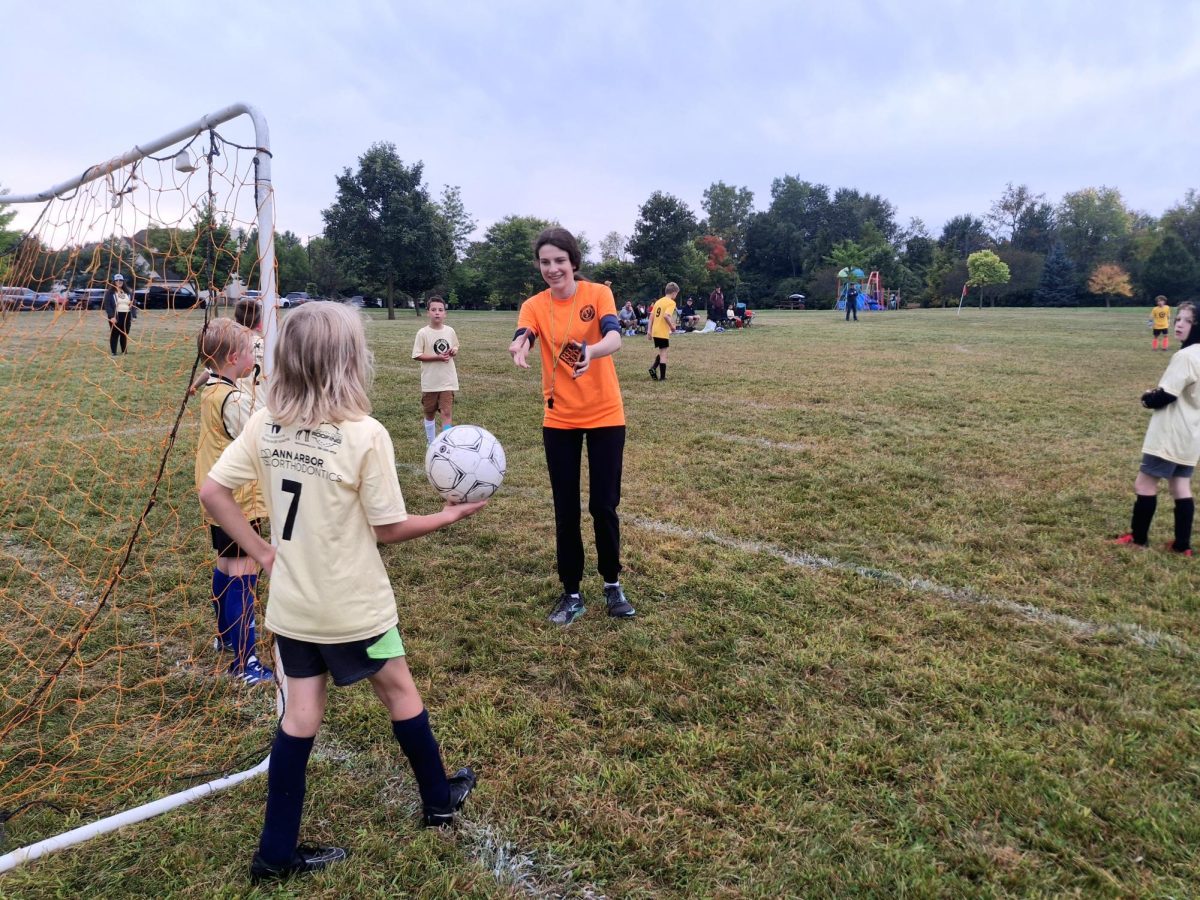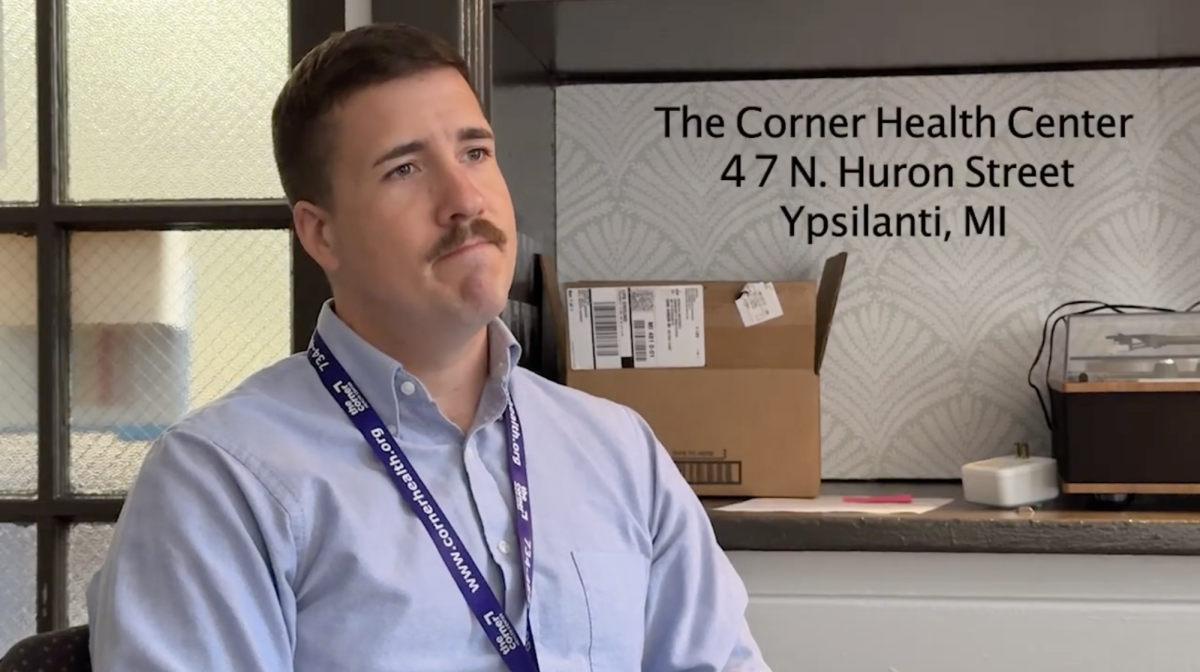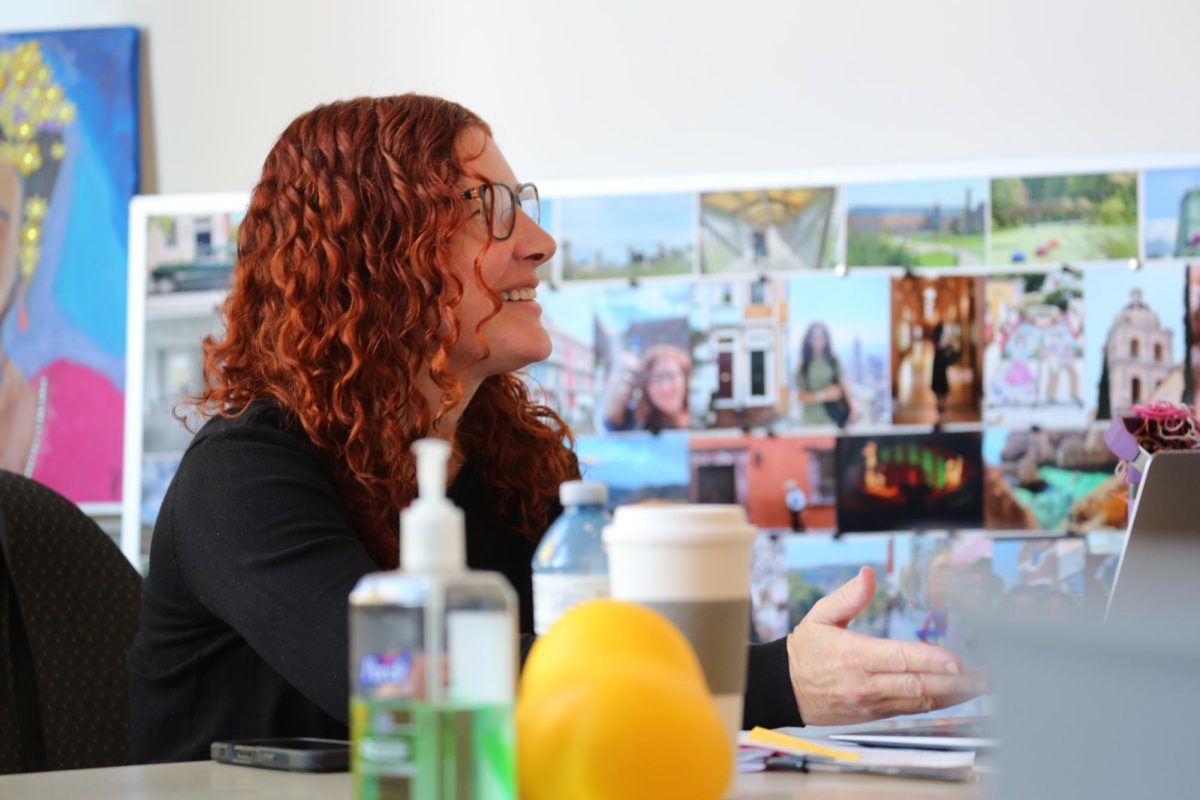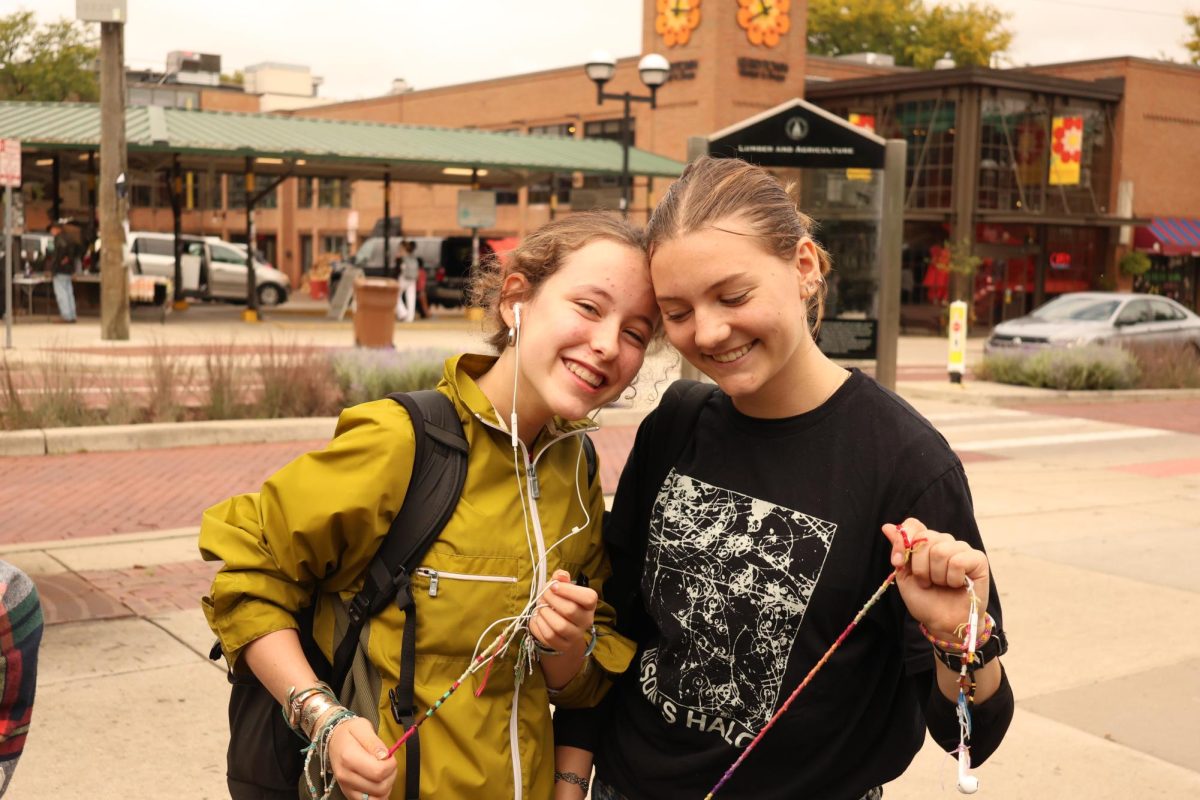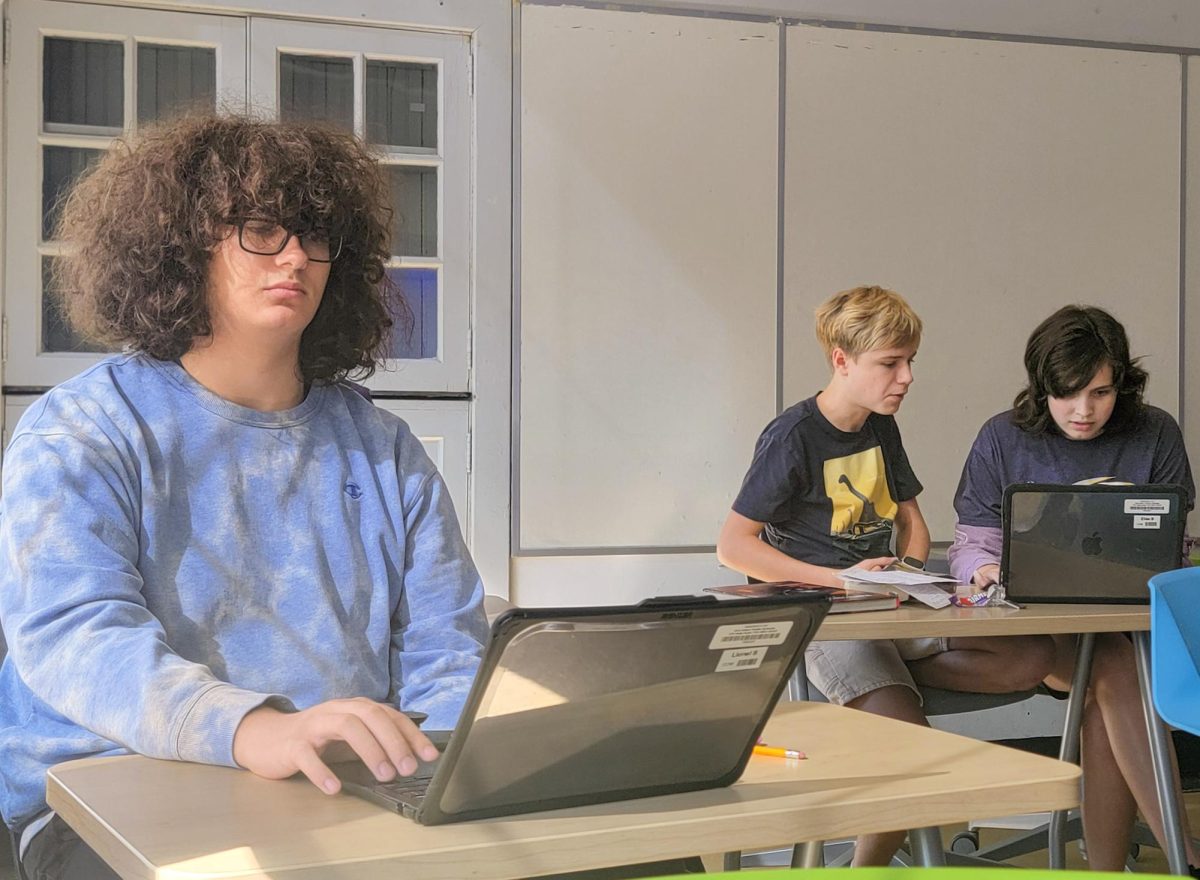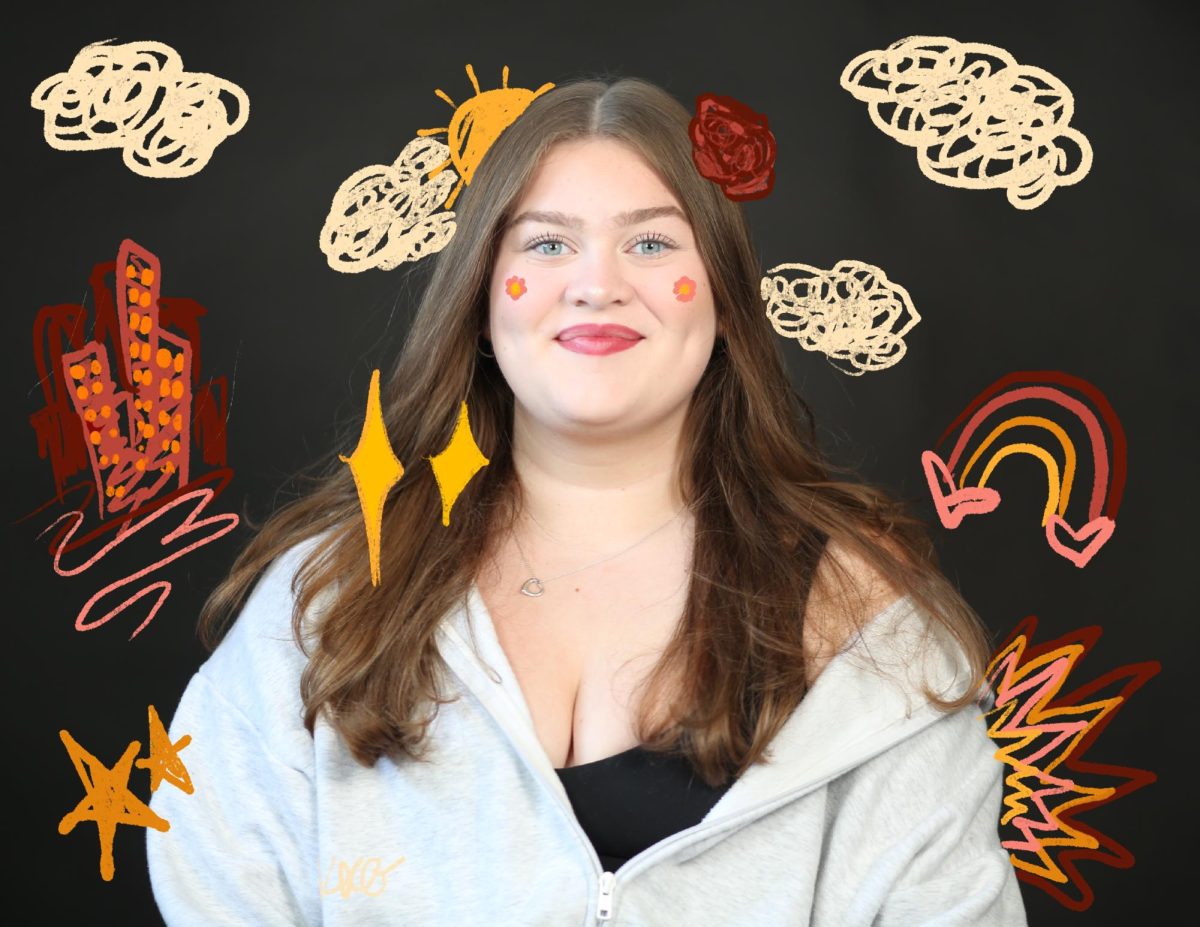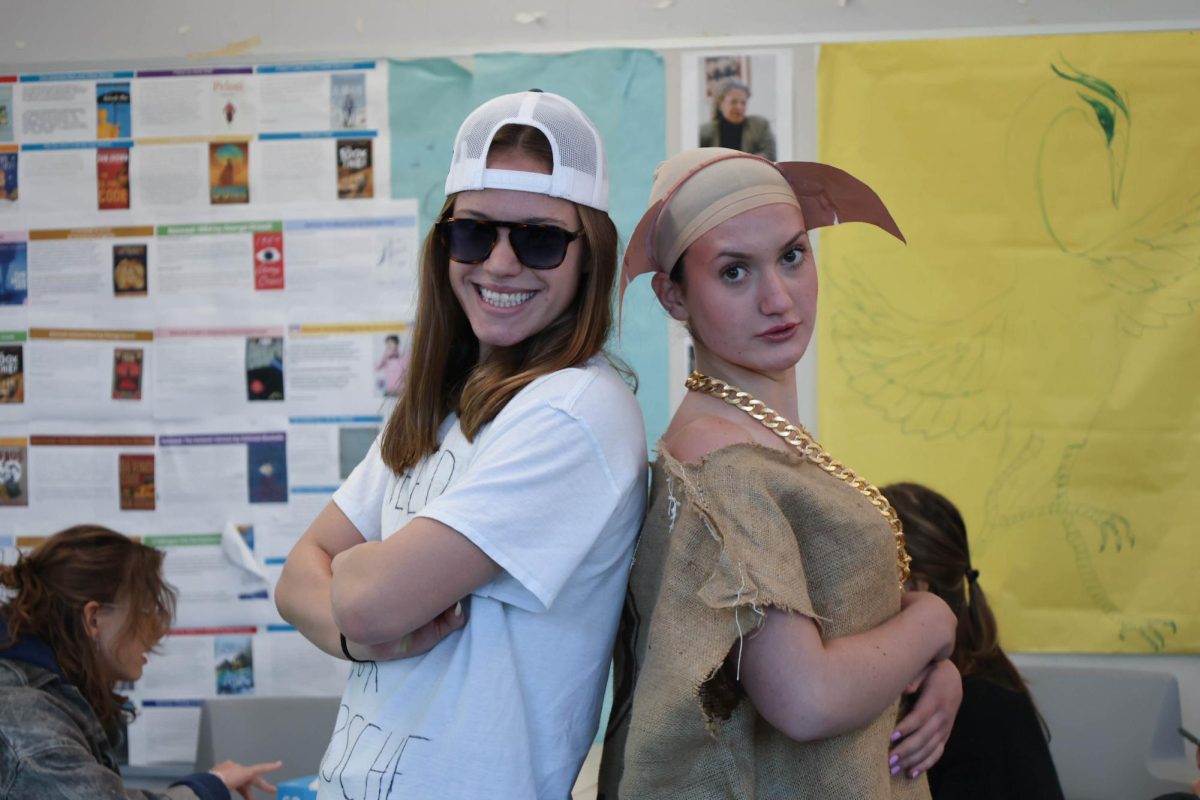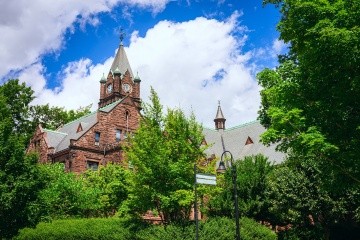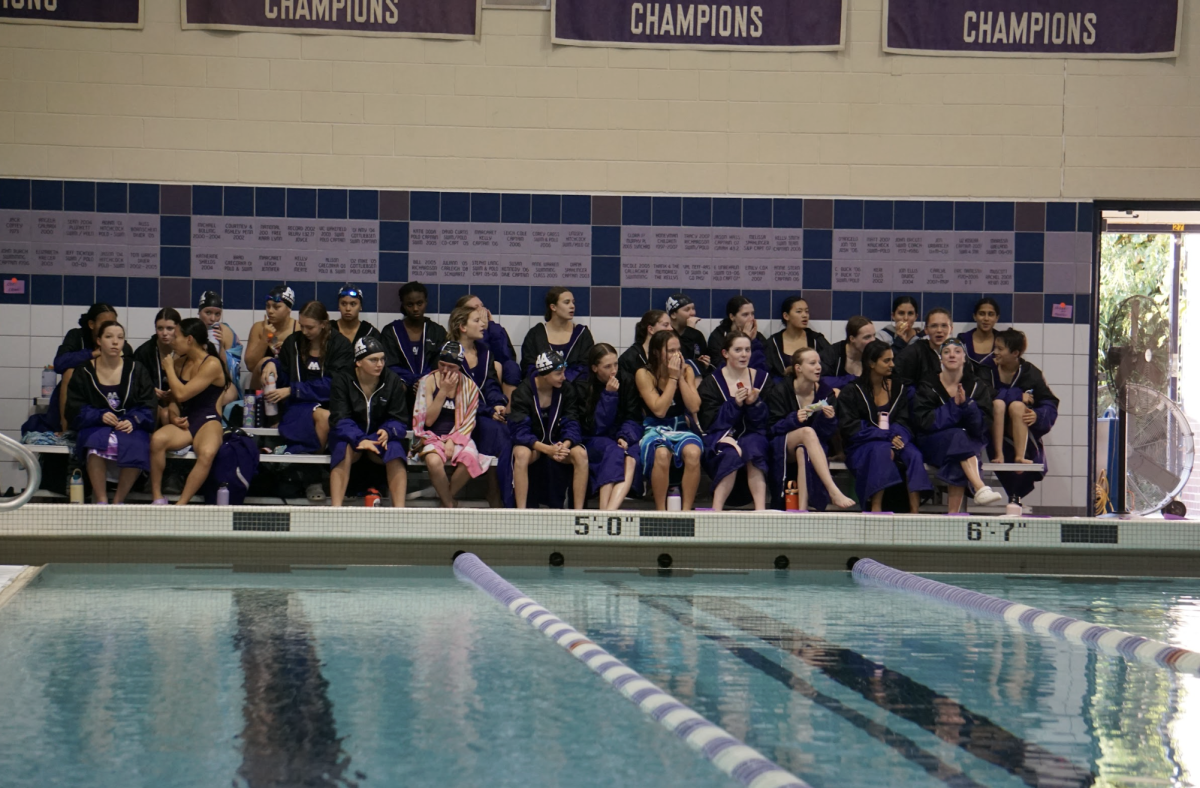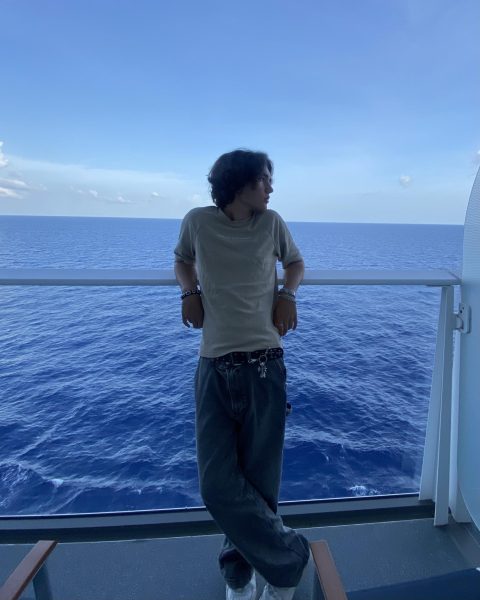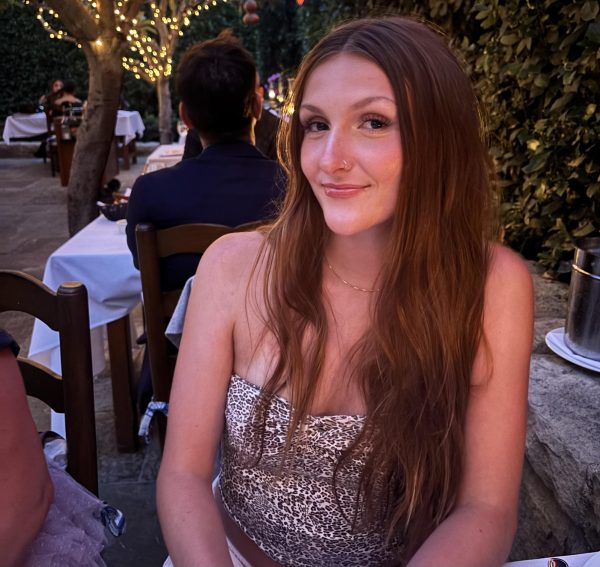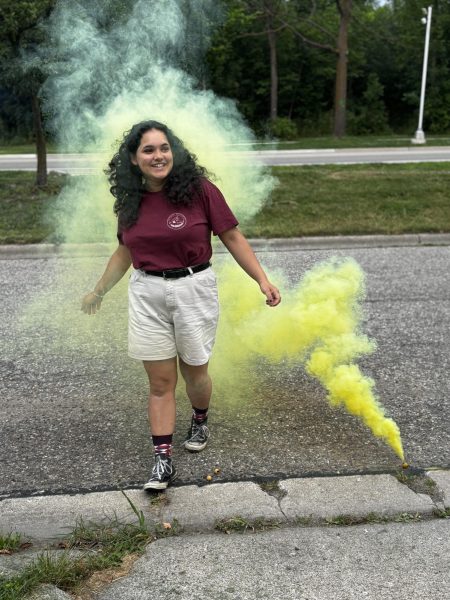For Katia Angelova, citizenship means freedom. It means being able to travel to and from her home country without worry, and it means being able to see family. On May 23, 2024, she was finally able to do that.
Angelova’s journey towards citizenship began eleven years ago on January 13, 2013, when she boarded a plane to the United States with her husband and two kids. That plane departed from the place they had known for their entire lives — Bulgaria.
At the time, Angelova’s husband was working at an American company with operations in Sofia, Bulgaria, when he was offered a temporary position in Holland, Michigan on an expat assignment. This meant the family would stay for around a year and a half, allowing them to get feel for the U.S. without committing to the immigration process.
Still, for someone who highly values her connection with friends and family, Angelova found the idea of leaving home hard to accept.
“It was so hard to be separated from friends and family,” Angelova said. “In a sense, it felt like dying because you’re not existing in that space anymore — you’re just having those spiritual contacts with your friends and family from time to time.”
However, she also recognized that moving could be an opportunity to provide her children, ages six and seven, with a better life—specifically, one son, who had been diagnosed with autism three years prior.
“In Bulgaria, there were no services,” Angelova said. “I was actually part of an organization that was putting all of its efforts into certifying specialists to work with kids with autism, so there was very little known in Bulgaria about autism, and there were no good therapists there. This was a very essential part in our decision just making sure that our child would have a better future here.”
Angelova believes autism opens the door to a new world of newfound opportunities. Yes, it presents sensory challenges for her child, but it also allows him to see the world differently — a different “wiring” in the brain.
Angelova remembers the fear she felt early on, not knowing anything about the condition that would affect her child for the rest of his life. She was told there was no path to success and no guarantee that he would ever be able to live independently. It wasn’t until they visited doctors in the U.S. that the path became clear.
“By the time we arrived, he was in a very, very good state already,” Angelova said. “The child is good now, and I’m so grateful that the education system did great things for us.”
One of the biggest hurdles for Angelova and her family was the language barrier. Her kids spoke almost no English, and going somewhere they couldn’t fully communicate was daunting. Angelova wasn’t fluent in the language either, and she felt limited in expressing herself the way she was used to.
“Even though my English was pretty good, I was still forced to function at a level that’s lower compared to my level of expression in my native language,” Angelova said. “It is a very humbling experience. You’re used to expressing yourself in a certain way, and all of a sudden you have to reduce it to a much lower level, much simpler terms, and it is really hard to accept that.”
Navigating a new place with new cultural and societal differences was a significant change, but it was welcomed in some ways.
One of Angelova’s most vivid memories upon coming to the U.S. is walking through the cold streets of Holland in midwinter: no cars on the road, no people in sight. It felt like a ghost town to her because of how different it was from the bustling capital of Bulgaria. However, as an adventurer at heart, these new experiences were where she found the most joy.
Bringing Adventure to the U.S.
Angelova first discovered her love for adventure as a young girl coming home from summer camp.
“I was thinking, ‘Oh, I want to experience everything in life.’ I even wanted to die and then be revived just to see what it is like, but no, I’m not there yet. I gave up some of those things,” Angelova said. “At some point after having kids, I didn’t need so many extreme experiences anymore, but I’ve always been curious to experience new things.”
Luckily, the U.S. brought with it many new places for Angelova to explore. Combining her connection with family and her love of adventure, she found herself frequenting more and more nature spots across the country. Filled with dirt biking, skydiving and rock climbing, these times were some of her favorites throughout the years. Whether it be kayaking with alligators in the Florida Everglades or spending a winter day in the Sequoia National Forest, Angelova has not missed an opportunity to appreciate the vast expanse that is the United States.
In the past eleven years, she and her family have visited most of the country’s 63 national parks.
“One of the wonderful things that happened is we met a family from Switzerland who have a nonprofit organization called toptotop.org. Each kid has been born at different points in the world, and they’re traveling full time only by using solar power and human power,” Angelova said. “It was amazing to finally see that a different way of life is possible. We became very good friends with them.”
Forming new friendships was not limited to travel, though. In 2015, Angelova’s husband took a permanent new job near the Ann Arbor, Michigan area, moving the family 155 miles east. Here, Angelova rediscovered her love for volunteering.
First, it was in her children’s classes, using the knowledge she learned from studying English in Bulgaria. Where options were limited in Bulgaria, Ann Arbor was overflowing with unique ways to impact the world around her. One was working in the gardens of a local high school — Community High.
“I’ve been able to create relationships and friendships here,” Angelova said. “It was not just hardship, it was really beautiful things I found here, and beautiful people.”
Getting Citizenship
Angelova’s children had also found a home in the U.S. by now, and everyone was ready to begin the road to citizenship, starting with the first step: applying for a green card. A green card is a “permanent resident” card that allows an individual to live and work permanently within the United States. Typically, applicants must hold a green card for five calendar years before applying for citizenship, but this process was delayed for Angelova because of her husband’s job shift.
Although it comes with the promise of freedom, the green card also brings restrictions.
For Angelova, this came in the form of travel. While on the green card, she was not allowed to leave the U.S. for more than six months, and every day she was out of the country needed to be strictly accounted for.
“We’ve been back to Bulgaria every summer for a few months because maintaining a relationship with family is very important for us, but my kids still feel more at home in the U.S.,” Angelova said. “Being citizens actually gives all of us the freedom to make the choice of what we want to do further on, and be where we want to be without restrictions.”
Angelova, her husband and her children then passed various citizenship tests. One test — the civics portion — consisted of ten questions drawn from a larger set of 100 that are provided to applicants in advance.
On May 23, 2024, Angelova’s family walked into the Theodore Levin United States Courthouse for their naturalization ceremony. Along with her family, 75 people from 25 countries were naturalized that day, and each new citizen received a personal letter from President Joe Biden recognizing them for their efforts.
“It was touching that somebody actually is recognizing that this is not an easy process, to leave everything behind and go somewhere else,” Angelova said. “You also receive a little flag with the whole package, but it’s the sense of relief that you have passed that threshold that’s really rewarding.”
Citizenship means freedom to Angelova; now, she has the freedom to go on any adventure, and whether that entails staying in the U.S. or visiting family in Bulgaria is up to her. For now, Angelova remains positive and content with staying close to her community, but has dreams to study in the U.S. in the future.
Along with citizenship, she also celebrates her son’s recent graduation from CHS, a milestone for the family. At the same time, U.S. citizenship also means new responsibilities for Angelova. Coming from a much less powerful country halfway across the world, she has the perspective to know that her choices here can make a huge impact there, for better or for worse.
“Now I have to make choices that will, in some way, even small, influence the whole world,” Angelova said. “We see now through the wars that are happening — everything is happening in a way due to decisions that are made. I realized that this is a very strong, very huge responsibility that we all have as a democracy, making decisions that will influence not just the American world.”






